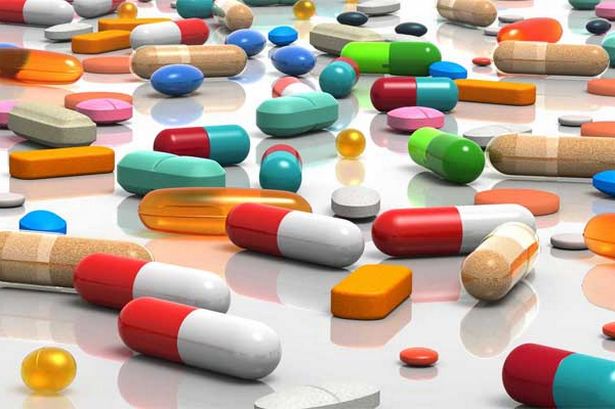Effect of statins on heart disease
On the one hand include statins to the world’s most frequently prescribed type of medication. On the other hand 2012, two separate studies have concluded that coronary calcification – a known marker of heart disease – is significantly increased when statins are taken. In the following article you will get to know the other, less well-known side effects of statins.

Statins contribute to the development of coronary calcification.
A new study shows that taking statins is associated with an increased by 52% prevalence of calcified coronary plaques compared to non-users of statins.
Arterial plaques are a major sign of cardiovascular disease and increase the risk of mortality. Therefore, anything to avoid what causes the calcification of the arteries and restrict the stretch – Statins appear to fall into this category.
In another study was published that Type 2 diabetics with advanced atherosclerotic disease, which frequently statins receipts , a significantly greater proportion of coronary calcification showed as people taking statins less or no income.
Furthermore, in a subgroup of participants who received no statins initially found that the progression of both coronary calcification and abdominal aortic arteriosclerosis significantly increased was when they started with the statins. Diabetes is a risk factor for cardiovascular disease, which is why many diabetics need to take a statin to reduce their risk. But the recent studies show that statins actually speed the progression of the disease!
The study also demonstrated in non-diabetics that statins increase the risk of developing type 2 diabetes. Furthermore, it was shown in another study that statins increase the risk of type 2 diabetes in post-menopausal women by 48%.
Side effects of statins.
Only a very small group of people with a family hypercholesterolemia , a genetic defect, in cholesterol levels over 325-350 causes, seem to benefit from statins. Given the many health risks may not be seen statins as a Means of Prevention. The scale of the side effects of statins range from muscle problems, anemia, acidosis, cataracts, disorders of the pancreas and liver, sexual dysfunctions, impaired memory to an increased cancer risk.
With the intake of statins is also associated to the lack of CoQ10 . So if you are taking statins, you should not ignore the supplement with CoQ10 (ubiquinol).
There is no “good” and “bad” cholesterol.
The effect of statins is to prevent the formation of cholesterol and LDL-cholesterol, which is known as the “bad” cholesterol. In reality, there are no “good” or “bad” cholesterol.
Both HDL and LDL cholesterol lead vital functions in the body , therefore it is dangerous simply to aim to maintain the LDL levels as low as possible.
The only thing that matters at LIDL is the size of LDL particles, which may be different. The only way to ensure that your LDL particles are large enough to do no harm, is a proper nutrition.
HDL (high density lipoprotein) and LDL (Low Density Lipoprotein) are proteins that carry cholesterol between tissues. Cholesterol plays an important role in hormone levels of such hormones as testosterone, estrogen, cortisol, DHEA or pregnenolone and a variety of other steroid hormones. More importantly, cholesterol also requires the regeneration of cells membranes.
A healthy diet is also the answer for type 2 diabetes. so you can through a healthy diet, control both diabetes and cholesterol levels, thereby reducing the risk of heart disease. An appropriate diet is the only known good way to regulate the LDL particle size.
So you can lower cholesterol naturally.
- Normalizing your insulin levels by giving up sugar (especially fructose) and grains in your diet.
- Take a high-quality animal omega-3 supplements to be such as krill oil.
- Pay attention to the quality of the food (ideally organically grown or reared food without chemicals).
- Eat healthy, preferably crude fats such as: Olive Oil, Coconut Oil, Organic raw dairy products, avocados.
- Eggs of poultry biologically is shrunk.
- Meat from organic farms.
- Regular exercise improves circulation and blood flow throughout the body. The components of the immune system are also be distributed better, thus the immune system has a better chance to fight against a disease before it can spread.
- If you are a man or a woman in the menopause , you should check your iron levels. A increased concentration of iron can large oxidative damage in the blood vessels, causing the heart and other organs. Excess iron is also one of the most important factors in cancer risk.
- Avoid the smoking and excessive drinking of alcohol.